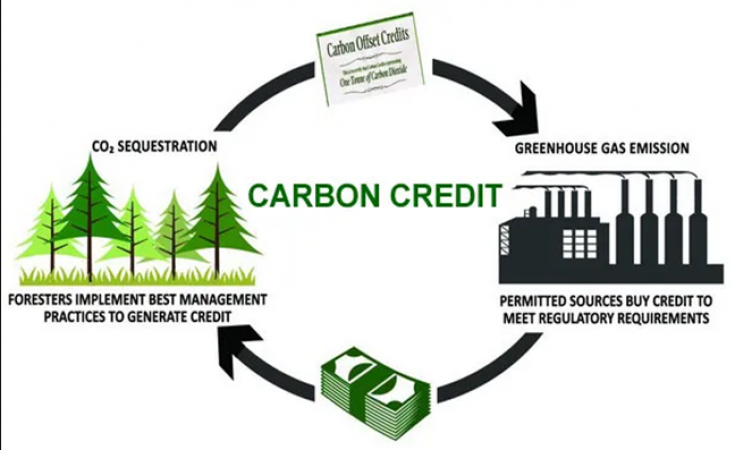
Hong Kong: Hong Kong is close to establishing an exchange-based voluntary carbon credit trading market, according to the city's exchange operator, which will increase its stature in Asia's green finance industry, where it already leads the pack in terms of green bonds. Is.
Hong Kong Exchange and Clearing (HKEX) is building the framework for "a first-class platform" after recently partnering with potential buyers, sellers and intermediaries to better understand their needs. This was stated by the company's CEO, Nicolas Agugin.
"We are getting very close," he said at the annual forum of the Hong Kong Green Finance Association on Thursday. We are making significant progress, and in the not-too-distant future, I anticipate seeing carbon [credits] traded in our market. This will significantly advance the sustainability agenda in the region.
Also Read: Hurricane Fiona: Canada braces for one of the worst storms in history
The Hong Kong International Carbon Market Council was established by HKEX in July to promote partnerships to establish an international carbon market in Hong Kong.
Hong Kong subsidiaries of A&N Banking Group, Bank of China, BNP Paribas, HSBC, Industrial and Commercial Bank of China and Standard Chartered Bank are among the inaugural members.
In addition to green project developers and potential credit sellers China Energy Conservation and Environmental Protection Group, China Forestry Group and State Power Investment Corporation, corporate members include greenhouse gas emitters and potential credit sellers Cathay Pacific Airways and Tencent Holdings.
Hong Kong arranged and issued green and durable bonds worth US$31.3 billion last year, according to Financial Secretary Paul Chan Mo-po, placing it leading and accounting for a third of the total in Asia.
Even though trade has been going on for more than 20 years, there are still many barriers to voluntary trading of carbon credits globally. Most are traded off-exchange, over-the-counter.
Also Read: Tigris River in Iraq is drying up
According to Glenda So, co-head of markets at HKEX, challenges include changes to the disclosure and verification standards in the markets for recognition of credits, which affect their perceived quality and value. Another problem is counterparty and settlement credit risk.
According to Sammy Leung, partner of regional ESG services at PwC Asia-Pacific, another obstacle to voluntary credit trading is the lack of talent for validating the carbon emission reduction benefits of projects, for which there are often specialized forestry projects. Scientific knowledge is required.
According to Christopher Webb, global head of carbon markets at HSBC, projects will take time to adopt, despite ongoing market consultations and initiatives by the Integrity Council for the Voluntary Carbon Market to set standards and standards for high-monolithic carbon credits. , a governing body.
Many standards "need to continue their development to further enhance best practice while on that journey," he continued. "Second, don't expect methodology to stop innovation."
According to Ecosystem Marketplace, the total value of transactions in voluntary carbon markets around the world reached nearly US$2 billion last year, nearly four times more than in 2020.
The Taskforce on Scaling Voluntary Carbon Markets estimated last year that trade could reach US$50 billion in 2030 as more corporate emitters commit to net zero targets and credits need to be purchased to offset the carbon footprint. which they are unable to reduce themselves. Credit vendors can finance their projects to reduce carbon emissions.
The Efficiency and Effectiveness of Credit Trading, a task force led by the private sector, to help achieve the Paris Agreement goal of limiting global warming to 1.5°C above pre-industrial levels and avoiding catastrophic economic and social repercussions tries to increase.
Meanwhile, Meng Meng, chairman of the Guangzhou Emissions Exchange, suggested that Hong Kong, which lacks a mandatory carbon trading system, consider using the province of Guangdong's established forum.
Also Read:Egypt requests that developed countries shoulder the financial burden of combating climate change
Even though a mandatory program would need to be established through legislation and consensus-building, she said, it would be a cost-effective way for Hong Kong to create a more green finance tool to aid in the achievement of its climate goals.
According to Meng, about 6 billion yuan (US$850 million) have been transacted in the Guangdong plan since trading began a decade ago.